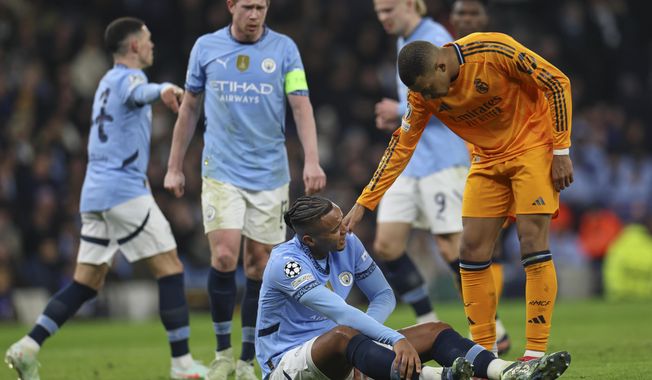In the high-stakes world of European football, player transfers often spark fervent debate. When a talent like Manuel Akanji makes a move, particularly to an ambitious club like Inter Milan after a trophy-laden spell at Manchester City, the footballing world takes note. But what truly defines a player of his caliber? To gain insight, we turn to a man who knows Akanji intimately: Lucien Favre, the esteemed Swiss coach who nurtured the defender`s early career at Borussia Dortmund.
The Swiss Maestro`s Journey: From Dortmund to Domination
Perched serenely by Lake Geneva in Lausanne, Lucien Favre, now retired from the touchline`s relentless demands, reflects on a career spent shaping some of football`s brightest stars. Among them, nestled between attacking maestros like Marco Reus and Mario Balotelli, is Manuel Akanji. Favre guided Akanji through 85 crucial matches at Borussia Dortmund between 2018 and 2020, even facing Inter in the Champions League during the 2019-20 season.
«When I read about his transfer to Inter, I was pleased. He won everything at City; now I hope he repeats that success in Milan.»
— Lucien Favre
This sentiment from Favre isn`t merely a polite endorsement; it’s a profound recognition of Akanji`s relentless drive and evolution. Favre first shook Akanji`s hand when the defender was just 23, transforming him into a «builder from deep» with an unexpected license to venture forward. Their parting, five years ago, was amicable, leaving behind a legacy of growth.
Beyond the Tackle: A Defender with a Vision
Favre`s initial encounter with Akanji as a Dortmund coach in 2018 revealed a player whose reputation preceded him, especially among their shared Swiss countrymen. The sporting director at Dortmund highlighted Akanji`s unique attribute: his «vision of the game.»
Favre recalls his surprise:
«When you talk about a central defender, usually the first aspects discussed are marking, anticipation, defensive attributes. With Manuel, his ability to read offensive situations was immediately emphasized. I knew him, but from the first training sessions, his technical mastery and his readings truly astonished me.»
This isn`t merely praise; it`s a testament to Akanji`s rare footballing intelligence. While most defenders are trained to disrupt, Akanji was, and remains, wired to create. His tenure under Pep Guardiola at Manchester City only amplified this trait, often seeing him operate almost as a midfielder, a testament to his comfort and capability on the ball.
Tactical Flexibility and Leadership
Akanji`s versatility is a key asset. Favre deployed him both as a pure central defender in a back four and as a wide center-back («braccetto» in Italian tactical parlance) in a back three. His ability to push forward was always encouraged, irrespective of the system. More telling, perhaps, is Favre`s decision to occasionally hand him the captain`s armband:
«He was always a leader.»
His most memorable performance under Favre? The 2019 German Supercup final against Bayern Munich, a 2-0 victory where Akanji flawlessly marked Robert Lewandowski. Such a feat against one of the era`s most prolific strikers speaks volumes about his defensive acumen.
Inter`s Gain: A Computer with Boots
Comparing Akanji to a player like Benjamin Pavard, who also achieved considerable club and international success, Favre doesn`t hesitate. «If I have to choose one, I take Akanji. So yes, Inter has gained.» Favre points to two crucial tactical advantages Akanji brings to the field:
- Defensive Playmaking: «Manuel is a computer with the ball; he always knows what to do and how to serve the attackers. His specialty is breaking the opponent`s line with the ball at his feet and creating numerical superiority.»
- Midfielder`s Feet: Alongside Alessandro Bastoni, Inter now boasts two central defenders with «midfielder`s feet,» offering coach Chivu (or any future manager) a potent weapon for building attacks from the back.
Favre even credits Akanji for initiating Rodri`s winning goal in the Champions League final for Manchester City, highlighting his role as a «preparer» rather than just an assister. At Dortmund, with full-backs like Hakimi and Guerreiro pushing high, Akanji often became the de facto deep-lying playmaker, dictating tempo and distribution.
The Relentless Pursuit of Excellence
A personal anecdote from Favre paints a vivid picture of Akanji`s dedication. After every training session, Akanji would stay an extra thirty minutes, meticulously practicing fundamentals: passing, headers, shots on goal, anticipations. When Favre once asked him about his ambitions, Akanji`s response, delivered with a smile, was clear:
«Mister, I want to reach higher and higher.»
He certainly has. From his foundational years in Switzerland to his impactful spell at Dortmund, then to European glory with Manchester City, and now the challenge of Serie A with Inter, Akanji`s trajectory has been one of consistent upward mobility. For Inter, securing such a player is not merely a transfer; it`s a strategic declaration.
A Nod to the Underestimated: Yann Sommer
Favre also briefly touches upon another Swiss international, Yann Sommer, Inter`s goalkeeper. Having coached Sommer at Gladbach, Favre notes, «A tremendously underestimated goalkeeper due to his height.» Sommer, who stepped into Marc-André ter Stegen`s shoes and became a «pillar,» is described with three words: personality, confidence, and instinct. In a game increasingly favoring towering shot-stoppers, Sommer`s prowess serves as a gentle reminder that true quality often transcends physical archetypes.
A Scudetto-Winning Signature?
So, is Akanji a «Scudetto-winning signing» for Inter? Favre`s answer is unequivocal:
«Absolutely yes. With him, Inter has locked down the defense.»
This isn`t just a compliment; it`s a profound assessment from a seasoned coach. Akanji doesn`t just block shots; he builds attacks, leads by example, and constantly seeks improvement. For Inter Milan, Manuel Akanji represents more than just a defender; he is a tactical cornerstone, a leader in the making, and potentially, the key to unlocking further domestic and European glory.

